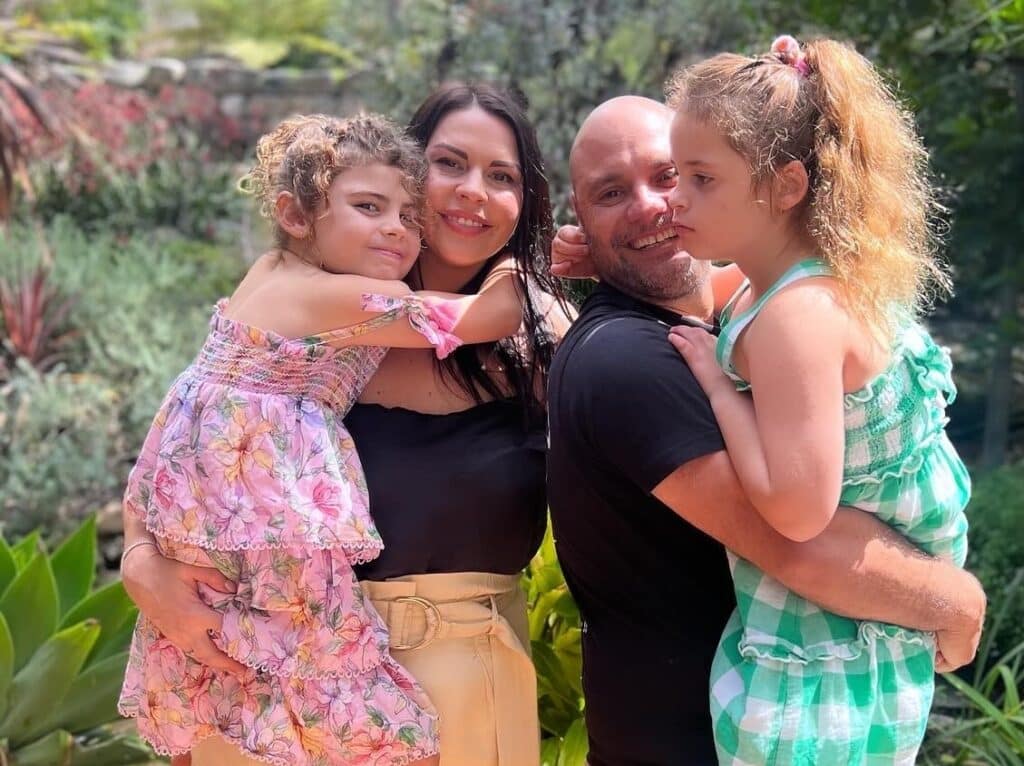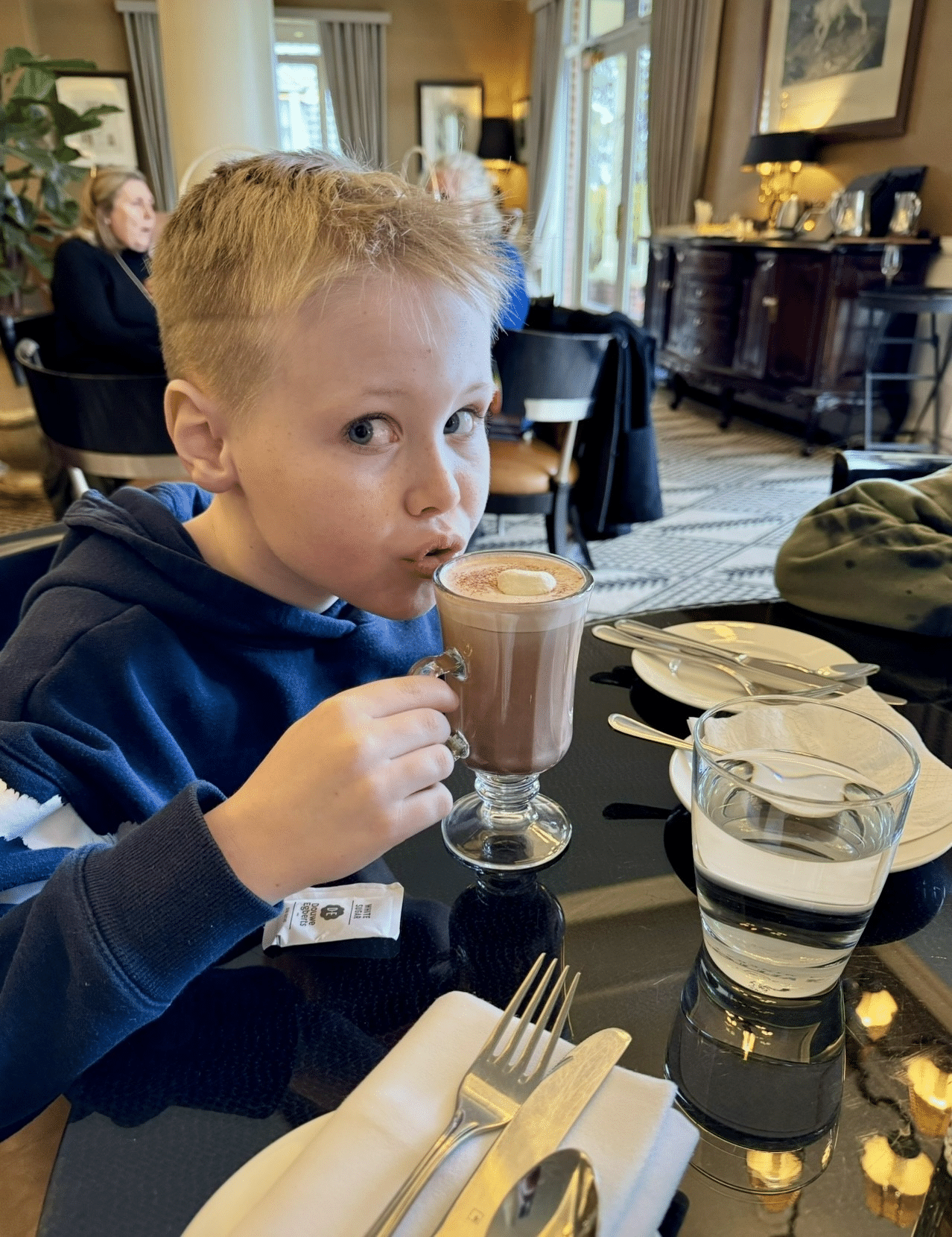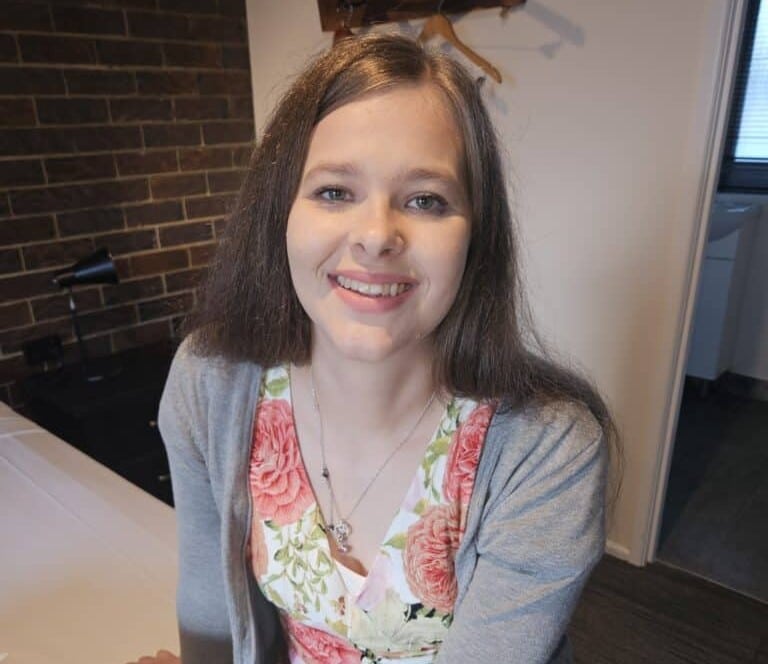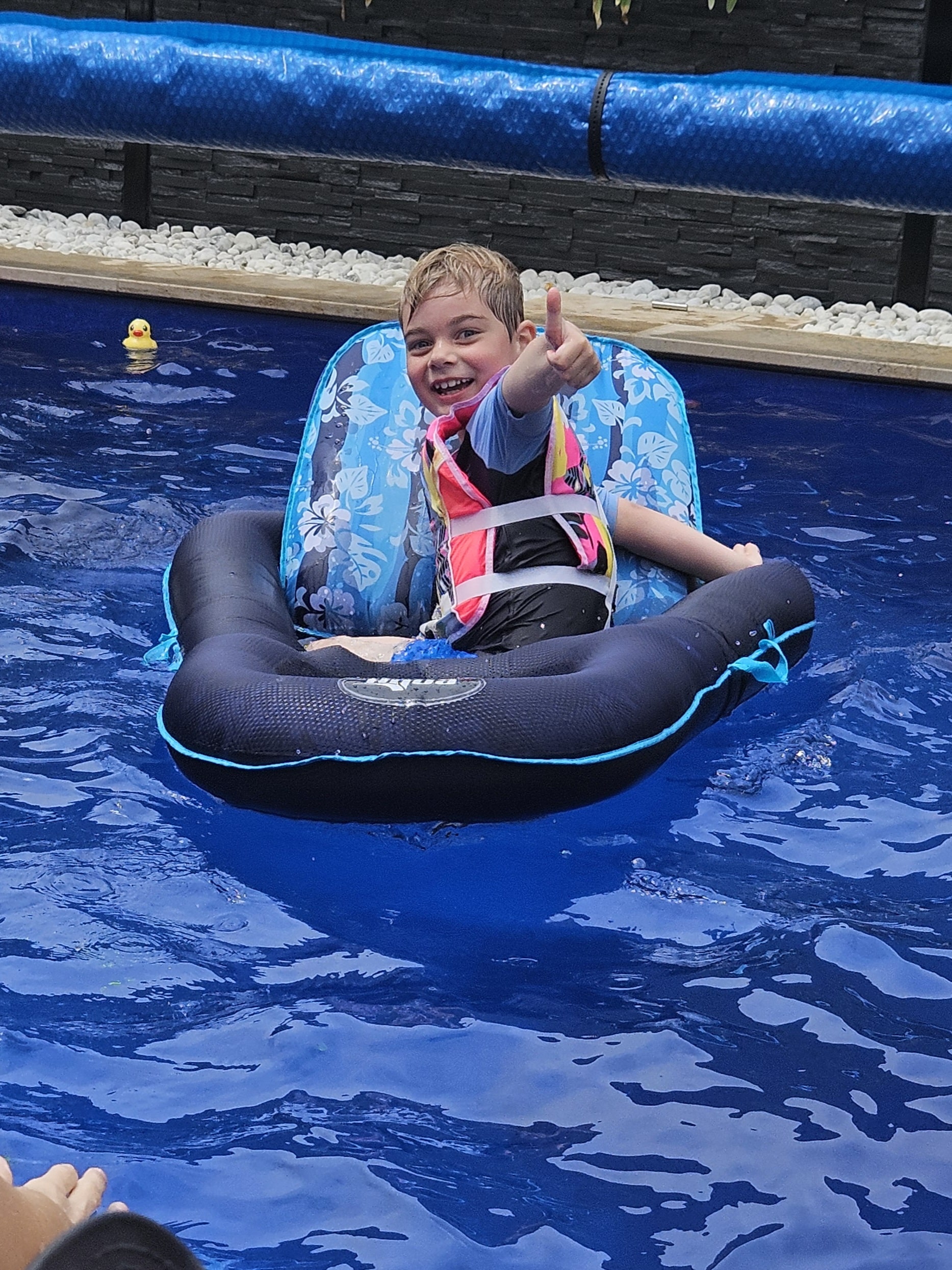Katalina
Based on an interview with Kirsten Kovacevic, Katalina’s mum (WA, May 2024)
Kirsten and her husband Boris live in Perth in Western Australia with their two gorgeous daughters – Anastasia and Katalina. Katalina was diagnosed with TSC (Tuberous Sclerosis Complex) before she was even born. Now, at just 6 years of age, she is about to undergo her third brain surgery.
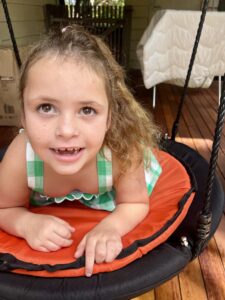
Kirsten and her husband Boris live in Western Australia. Their first daughter, Anastasia was born in 2016. It was a fairly ‘routine’ pregnancy and birth. Unlike Kirsten’s pregnancy for her second child. Her waters broke early and she was “somewhat dramatically” flown from remote Karratha where the couple were living to Perth by the Royal Flying Doctors. Kirsten and Boris assumed it was because they were going to have a premature baby.
On arrival in Perth a scan showed rhabdyomas on their baby’s heart and they were quickly told there was every likelihood that their second daughter may have Tuberous Sclerosis Complex (TSC). Sure enough, after Katalina (known as Kat to her family) was born she had evident ash leaf spots on her skin and an MRI confirmed that she did indeed have TSC.
The rest of the family underwent genetic testing and, much to his surprise and dismay, Boris, who is a Business Manager for a Mining and Construction Company, discovered that in fact he too had been living with TSC for his entire life. Completely undetected. He was told that the bumps on his nose were angiofibromas and that the annoying thing on his nail that he’d lived with for years was also due his TSC. Otherwise, he had, and still has, no evident symptoms.
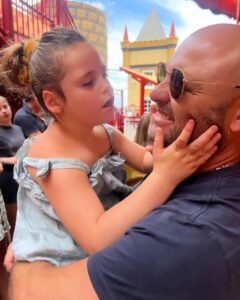
Unlike Boris, Kat started to experience seizures soon after her birth and so began the struggle to try to manage them. Much to their disappointment the family found out that it wasn’t possible to get an overnight video EEG (electroencephalogram) in Perth at the time and so they made contact with TSA (Tuberous Sclerosis Australia) to find out how and where they might be able to get help. Having read up on TSC they were understandably keen to get early intervention.
As a result, before long the Kovacevics boarded a plane to Brisbane, and, at just 8 months old, Kat was admitted to Queensland’s Children’s Hospital. Despite increasing Kat’s dosage of vigabatrin, it was soon evident that drugs were still not controlling her seizures and the Queensland team suggested surgery as an option. Just one month later, juggling both a new born and toddler Anastasia, the family returned to Brisbane for Katalina’s first surgery.
Kirsten says, “whilst it was really scary arranging brain surgery for our small baby, it was also pretty obvious that an endless cocktail of different medicines simply wasn’t going to work with Kat. From our consultations with the expert team in Brisbane, we were convinced that surgery was the right option for her.”

In the period just after the surgery Kat’s seizures were noticeably better and she started to make good progress in developmental areas. However, after a long COVID lock down, it became clear that the seizures were again worsening and Kat’s development was suffering. Because of the complexity of her condition, the Brisbane team referred her to surgeon, Dr Simon Harvey in Melbourne. Katalina had a second surgery in Melbourne in 2023 at the age of 5.
Although she demonstrated some ‘big behaviours’ after the surgery, which were very hard for her family to manage, Kat finally recorded a normal EEG and her family noticed many improvements in her development. Although she is still non-verbal, her transitions and understanding are much easier and better than they were before the surgery. She is able to walk to the car and feed herself and she has started toilet training. Kirsten says, “she’s taken so many big steps in the last 12 months, the surgery has definitely changed things.”
“Kat has so many tubers that she may never get complete seizure freedom. What we want is for her to be happy. At the moment she is very active. She loves the trampoline and adores fast fairground rides. Like, really fast ones that make her older sister Anastasia cry with fear!”
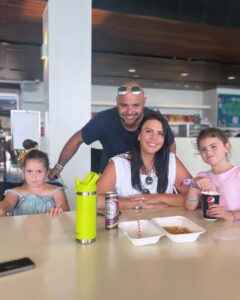
Like so many families, Boris and Kirsten have always put their girls first. And so, although they had a great network of friends in Karratha and loved living there, they have moved to Perth because it has a really good special needs school where they hope Kat will thrive. Kirsten admits that it’s a lot of pressure having a child with special needs. She says she feels they always need to be thinking 2 steps ahead, which is exhausting. She admits it can also be especially hard to juggle and make time for Anastasia. Recently, some of the impact on Kat’s older sister (Anastasia is now 7), was all too painfully obvious when she remarked, “I just wish my sister would talk. We’d have so much to talk about!”
Whilst acknowledging that living with TSC is often very, very tough and feels like, “constantly living in a state of crisis and damage control”, Boris and Kirsten are determined to do as many ‘normal’ family things as they can and to give their girls their best possible lives. Holidaying overseas feels like too big a challenge just now, but they enjoy many family holidays in Australia and are always ‘on the go,’ enjoying activities and time together.
Kat has so many tubers that she may never get complete seizure freedom. What we want is for her to be happy.
When asked what her advice to other families whose babies are diagnosed with TSC would be, she says, “As shocking and horrible as it is that your perfect new baby has this disease, you will be OK. Surround yourself with family and friends who will support you. Make sure you take breaks for yourself. Take your child out whenever you can and, most important of all, keep enjoying your life and your family.”
Sadly, Kat, who is now 6, recently started to experience seizures again and she is booked in for her third brain surgery on 14 May 2024. It’s a cruel blow for this loving family and will necessitate another lengthy stay interstate with all the disruption, stress and cost that necessarily involves. In her amazing altruistic style, Kirsten worries for families who aren’t able to make the considerable time and financial commitment that is needed to get this level of care.
